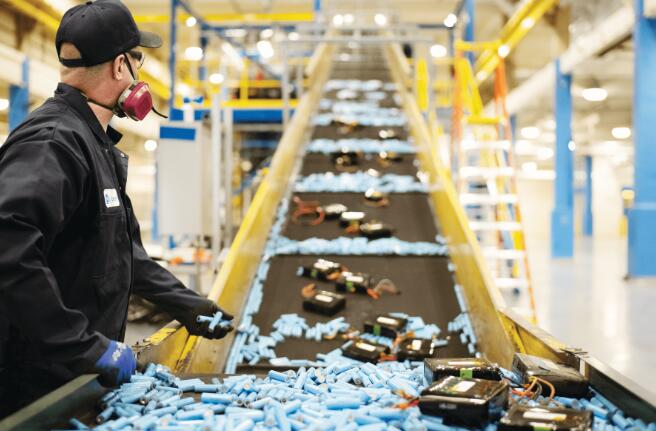In recent years, with the popularization of new energy vehicles, smartphones, tablet PCs and other electronic products, the number of used lithium-ion batteries has been increasing. This has brought about both a large-scale demand for power lithium-ion batteries and created many opportunities for the industry of lithium-ion battery recycling and laddering. The development of lithium-ion battery recycling and secondary utilization in the prevention of resource waste and environmental pollution at the same time, there will be considerable economic benefits and investment opportunities.

2012~2015: battery recycling began to be mentioned by the policy, the lack of systematic policy, the gradient utilization as one of the key ideas.
2015~2018: enter the thematic policy stage, the state for power battery recycling has introduced a number of policies, methods, recycling management, recycling technology standards to make detailed provisions.
2018 to the present: the speed of policy introduction has accelerated, and it has begun to intensively release various management methods, additional battery traceability management and so on.
(1) Normalization and standardization
As the state attaches importance to the recycling of waste batteries, the relevant policies and standards are also being improved. In the future, the recycling of waste lithium-ion batteries will be more standardized and standardized, and recycling companies need to follow the relevant standards for recycling and processing.
(2) Technological innovation
In order to improve the recycling efficiency and quality of waste lithium-ion batteries, continuous technological innovation is needed. For example, to develop more efficient recycling equipment and processes, improve the recovery rate and purity of valuable metals.
(3) Industry chain integration
The recycling of used lithium-ion batteries involves a number of links, such as recycling, transportation, dismantling and treatment. In the future, industry chain integration will become a trend, through the integration of upstream and downstream enterprises, can improve the recycling efficiency, reduce costs, and achieve the maximum utilization of resources.
(4) International cooperation
Recycling of used lithium-ion batteries is a global issue that requires the joint efforts of the international community. In the future, international cooperation will become more and more frequent. By strengthening international cooperation, experience and technology can be shared to promote the healthy development of the waste lithium-ion battery recycling industry.
Qunfeng Heavy Industries (Peaks-eco) is developing a sustainable recycling solution aimed at recovering battery materials contained in production scrap and end-of-life lithium-ion batteries (LIBs), which may be disposed of in landfills or processed in high-emission pyrometallurgical processes. Recovery circuits. Qunfeng Heavy Industries' (Peaks-eco) process is designed to recover valuable materials from consumer electronics batteries (devices utilizing lithium cobaltate (LCO) cathodes) as well as nickel-rich electric vehicle and stationary battery chemicals (lithium-nickel-manganese-cobalt (NMC) cathodes). Lithium-ion battery recycling technologies are designed to recover cobalt, nickel, lithium, copper, iron, aluminum, carbon, plastics, and manganese into marketable products that can be reused in the battery supply chain.
Process Technology:
Qunfeng Heavy Industries' sustainable hydrometallurgical method represents an extremely safe method of extracting metals at room temperature using recycled liquid solvents to bring high-purity chemicals back into the battery supply chain. While today's existing “pyrometallurgical” methods can be considered a sunset recycling technology, hydrometallurgical recycling is a sunrise approach ready to take on the heavy lifting of reducing the current high carbon footprint of lithium-ion batteries.
In summary, the recycling of used lithium-ion batteries is an industry with a bright future. With the continuous progress of technology and policy support, the recycling efficiency and quality of used lithium-ion batteries will continue to improve, providing strong support for the development of new energy vehicles and other industries. At the same time, we also need to strengthen the regulation of the waste lithium-ion battery recycling industry, standardize the market order and promote its healthy development.